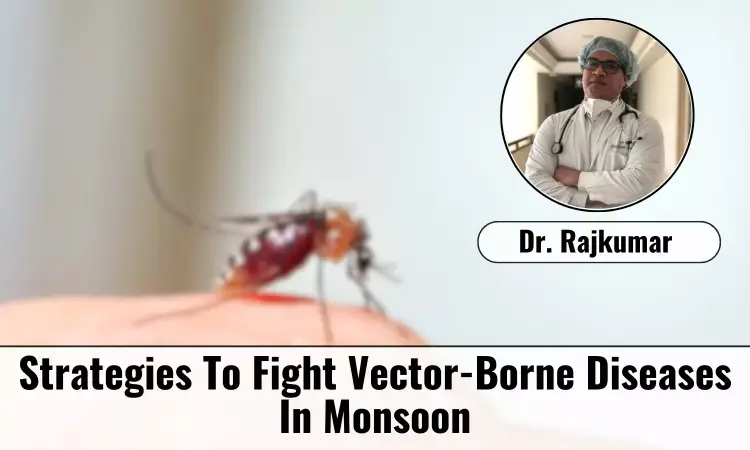- Home
- Medical news & Guidelines
- Anesthesiology
- Cardiology and CTVS
- Critical Care
- Dentistry
- Dermatology
- Diabetes and Endocrinology
- ENT
- Gastroenterology
- Medicine
- Nephrology
- Neurology
- Obstretics-Gynaecology
- Oncology
- Ophthalmology
- Orthopaedics
- Pediatrics-Neonatology
- Psychiatry
- Pulmonology
- Radiology
- Surgery
- Urology
- Laboratory Medicine
- Diet
- Nursing
- Paramedical
- Physiotherapy
- Health news
- Fact Check
- Bone Health Fact Check
- Brain Health Fact Check
- Cancer Related Fact Check
- Child Care Fact Check
- Dental and oral health fact check
- Diabetes and metabolic health fact check
- Diet and Nutrition Fact Check
- Eye and ENT Care Fact Check
- Fitness fact check
- Gut health fact check
- Heart health fact check
- Kidney health fact check
- Medical education fact check
- Men's health fact check
- Respiratory fact check
- Skin and hair care fact check
- Vaccine and Immunization fact check
- Women's health fact check
- AYUSH
- State News
- Andaman and Nicobar Islands
- Andhra Pradesh
- Arunachal Pradesh
- Assam
- Bihar
- Chandigarh
- Chattisgarh
- Dadra and Nagar Haveli
- Daman and Diu
- Delhi
- Goa
- Gujarat
- Haryana
- Himachal Pradesh
- Jammu & Kashmir
- Jharkhand
- Karnataka
- Kerala
- Ladakh
- Lakshadweep
- Madhya Pradesh
- Maharashtra
- Manipur
- Meghalaya
- Mizoram
- Nagaland
- Odisha
- Puducherry
- Punjab
- Rajasthan
- Sikkim
- Tamil Nadu
- Telangana
- Tripura
- Uttar Pradesh
- Uttrakhand
- West Bengal
- Medical Education
- Industry
Revamp Your Strategies To Fight Vector-Borne Diseases This Monsoon - Dr Raj Kumar

The monsoon season indeed brings relief from the scorching heat but also ushers in an increased risk of vector-borne diseases. The combination of heavy rainfall, moist environment, waterlogging, and inadequate sanitation infrastructure creates favourable conditions for the spread of diseases.
Contaminated water sources, improper food handling, and poor hygiene practices contribute to the rise in cases of gastroenteritis, diarrhoea, and other gastrointestinal illnesses. These conditions significantly impact individuals, leading to symptoms such as abdominal pain, vomiting, and dehydration.
Contributing Factors:
Vector-borne diseases such as malaria and dengue are transmitted by mosquitoes, while water-borne diseases like cholera and typhoid are caused by contaminated water sources. These diseases affect the gastrointestinal tract and essential organs including the stomach, intestines, pancreas, and liver, among others and can lead to harsh symptoms like diarrhoea, vomiting, abdominal pain, and dehydration. Inadequate sanitation, poor hygiene practices, and exposure to contaminated food and water significantly contribute to the spread of these illnesses.
Proven Strategies To Remain Healthy:
1. Elimination of Mosquito Breeding Sites: Mosquitoes thrive in stagnant water. It is crucial to identify and eliminate any potential breeding sites around homes. Regularly emptying, cleaning, and covering water containers can greatly reduce mosquito breeding. Monitoring dripping water from air conditioners and maintaining the hygiene of aquariums at home is essential.
2. Personal Protection Measures: Individuals should use mosquito repellents, wear protective clothing (long sleeves and pants), and use bed nets to minimize mosquito bites, especially during peak mosquito activity times. Children should avoid playing near unkempt grass and garbage dumps.
3. Safe Water Practices: Access to safe drinking water is paramount. Boiling water for at least one minute, using water filters or purifiers, and practising proper water storage techniques help prevent water-borne illnesses. Regular cleaning of water storage containers is essential to maintain hygiene.
4. Hygiene Practices: Proper hand hygiene, including regular handwashing with soap and water before meals and after using the restroom, can prevent the transmission of pathogens. Encouraging good personal hygiene practices can significantly reduce the spread of gastrointestinal illnesses.
Treatment Methods:
1. Rehydration Therapy: Dehydration is a common concern in gastrointestinal illnesses. Rehydration therapy, through oral rehydration solutions or intravenous fluids, helps restore electrolyte balance and prevent complications.
2. Medications: Depending on the specific illness, appropriate medications may be prescribed to alleviate symptoms and target the underlying infection. Antibiotics may be necessary for bacterial infections like cholera or typhoid.
3. Nutritional Support: The body's nutritional requirements may be compromised during gastrointestinal illnesses. It is important to focus on replenishing lost fluids and electrolytes through oral rehydration solutions or intravenous fluids, depending on the severity of the condition. Additionally, a gentle diet on the digestive system is recommended, including easily digestible foods such as plain rice, boiled vegetables, bananas, and yoghurt. These foods can provide essential nutrients while being gentle on the stomach. It is essential to avoid spicy, fried, or fatty foods that may aggravate symptoms
Combatting vector-borne diseases during monsoon requires a comprehensive approach, addressing both mosquito-borne and water-borne illnesses. By implementing preventive strategies such as eliminating mosquito breeding sites, practising personal protection measures, ensuring safe water practices, and promoting good hygiene, the risk of vector-borne diseases can be mitigated, reducing the frequency of gastric illnesses. Timely medical attention, rehydration therapy, appropriate medications, and nutritional support play vital roles in the cure and treatment of these illnesses.
Disclaimer: The views expressed in this article are of the author and not of Medical Dialogues. The Editorial/Content team of Medical Dialogues has not contributed to the writing/editing/packaging of this article.
Dr Raj Kumar MBBS, MD (Internal Medicine) is Sr. Consultant (Internal Medicine) at Indian Spinal Injuries Centre. He has over 7 years of experience in Internal medicine. His areas of expertise are tuberculosis, pneumothorax, dengue, chikungunya, pulmonary edema, malaria, copd, arthritis, pulmonary embolism, enteric fever, etc.


